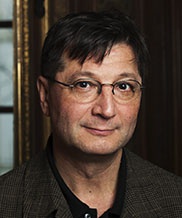POSTPONED! Double-Distributed Architecture: A Culture-mimetic Approach for Designing Resilient Sustainable Systems
mediaX Seminar
CERAS 101, Stanford University
12:00p-1:30p
Resilience and adaptation in many “natural” systems are obtained by distributed architectures: multiple similar local installations, each generating locally adapted activity.
Further resilience is obtained by a second distribution, within each installation, of functions and information between somewhat redundant layers.
Such double-distributed architectures combine robustness, flexibility, adaptability, and the power of scale without the rigidity and vulnerability of large centralized systems. Subsidiarity in their governance, regulation and maintenance enables deployment at very large scale (millions of units). As they scaffold behaviors and can induce large scale behavioral changes.
Installation theory describes how “natural” systems historically evolved in various cultures to adopt such architectures and how they operate, reproduce and adapt.
These DD architectures can be applied to a large diversity of systems, supporting the activity of humans, other animals or even artificial agents (AI, robots…). These are the resilient and adaptable architectures we need to address the current major societal challenges of transition of the anthropocene and technological revolutions.
This talk will describe in very practical terms how to design such DDA systems inspired by cultural evolution.
Presenter

Saadi Lahlou is Professor and Chair in Social Psychology at the London School of Economics and Political Science, and Director of the Paris Institute of Advanced Study. His most recent book: Installation Theory. The Societal Construction and Regulation of Behaviour (Cambridge University Press, 2017) has received international acclaim for its contribution to activity-based design.
He directed 4 other research units before this: the Consumer Research department of the Centre for Lifestyles and Social Policies (Crédoc, Paris), the Social Forecast Group at Electricité de France, the Laboratory of Design for Cognition at EDF R&D (the largest industry living lab at the time, which he founded and directed for 10 years), and the Department of Social Psychology at the London School of Economics and Political Science. He was a member of the steering committee of the Commissariat Général du Plan (French Prime Minister's office), and he is a member of the boards of many organizations at national or European level and research programs. He has written 200+ papers, 5 books and many reports. He developed new methods of investigation in behavioral change, text mining, consumption process analysis, action research for innovation, and digital ethnography.